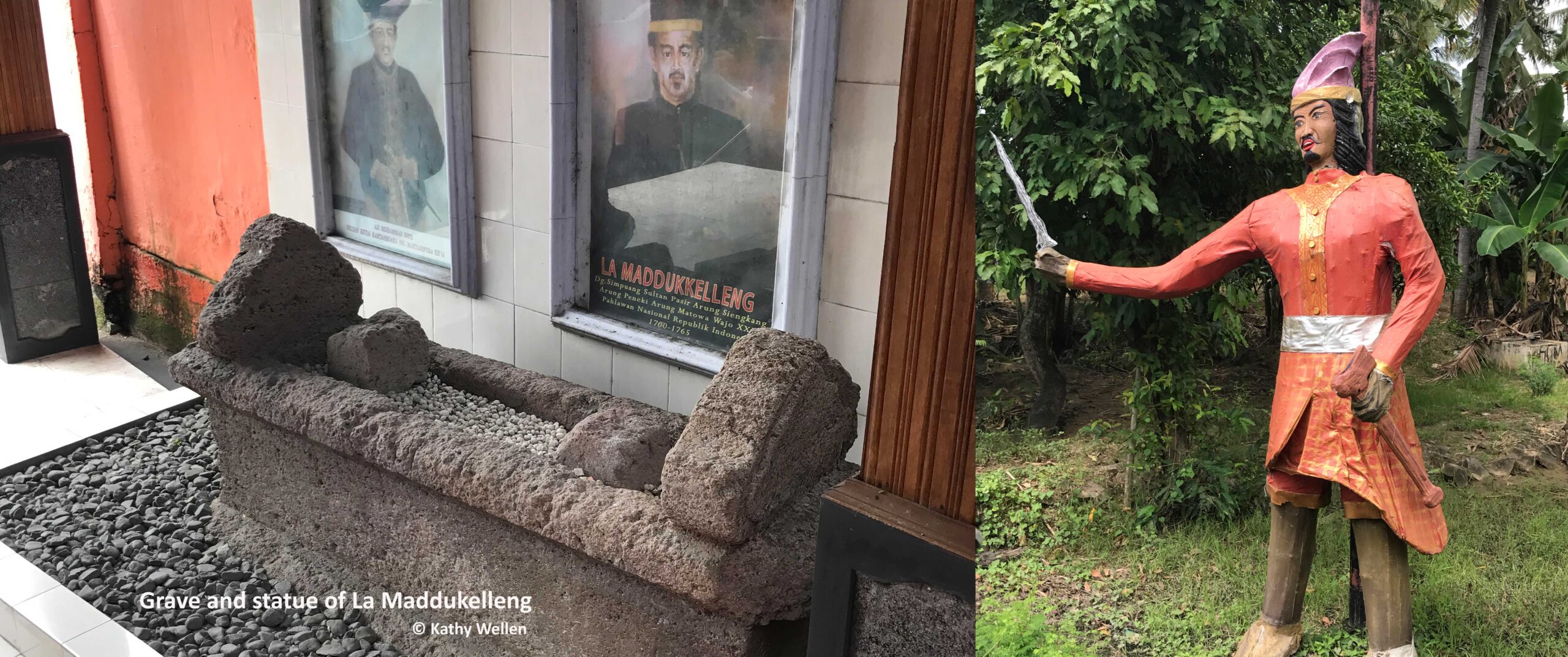
27 Nov Blog: Prosecuting former heads of state, Bugis style
By Kathy Wellen.
On December 14 the College of Electors will vote to elect the next President of United States of America. “What?” your media-weary brain exclaims. “I thought that happened last month!” But no, the popular vote for the United States president is of limited legal value in the United States. The architects of the American election system devised the electoral college with hopes of ensuring that the less populated states still had a voice in the selection of the president and that the office of president never be held by someone unsuitable. This compromise was part of an unprecedented experiment in representative democracy, the likes of which the world had never seen. And now, more than two centuries later, we must now wait and see if the members of this college will vote in accordance to the wishes of the people they represent or prove to be “faithless electors.” Meanwhile, there are calls to prosecute Donald Trump for a variety of crimes including fraud and obstruction of justice. Concomitantly there are questions as to whether or not it is legal and desirable to prosecute a former president, and who gets to decide.
This is what happens to an eighteenth-century political system in the twenty-first century.
While the United States may have the distinction of having the oldest living constitution in the world, questions about dealing with old agreements and prosecuting former rulers are nothing new. Other lands have been dealing with them since before the United States even existed. Let’s take an example from the other side of the world, the triumvirate of the Tellumpocco in South Sulawesi, Indonesia.
Tellumpocco which means “three peaks” in Bugis. The Tellumpocco is an alliance between the Bugis lands of Bone, Wajoq and Soppeng created by the Treaty of Timurung in 1582. It was essentially a defensive alliance against Gowa, the Makasar polity to the south which rose to pre-eminence in South Sulawesi during the late sixteenth and early seventeenth centuries. It served its purpose initially and Wajoq and Bone repulsed numerous attacks from Gowa during the late sixteenth century. Then in the seventeenth century a leader from Bone named La Tenritatta allied with the Dutch, defeated Gowa and ruled harshly over the peninsula. In the eighteenth century a leader from Wajoq named La Maddukelleng tried to expel the Dutch from the peninsula. Both leaders caused grave offense to their allies within the Tellumpocco but, throughout it all, the Treaty of Timurung was never forgotten. The alliance’s importance merely faded into the background and reemerged at various times according to political circumstances.
The 1582 Treaty of Timurung was still of political importance during the mid-1760s when representatives of the three lands of the Tellumpocco convened to discuss the crimes of Wajoq’s former ruler La Maddukelleng. Their discussions are recorded in an untitled Bugis text. The manuscript was commissioned by the nineteenth-century Dutch Bible translator and linguist B. F. Matthes; and his former employer, the Dutch Bible Society, has permanently loaned the collection to the Leiden University Library.
At this meeting, the Soppeng hesitates to summarize La Maddukelleng’s crimes because they are too extensive but eventually says that La Maddukelleng plundered and killed as far and wide as he could. The Makkedangngetana of Bone states that La Maddukelleng devastated the Tellupocco’s political stability (“broke” the Tellumpocco) which cannot be compensated for with jewels. Thereafter the texts shift quickly to a discussion of La Maddukelleng’s immunity. The participants debate as to whether or not it is legally possible to hold a ruler accountable for wrongdoing. They adjourn to their respective countries to consult their texts and meet again to compare their respective laws concerning a ruler’s immunity They confirm that, according to the customs of all three lands, a ruler is infallible. Metaphorically, they declare that whatever a ruler says is true, even in the face of contradictory evidence. The Tellumpocco is at a loss as to what to do about La Maddukelleng. Wajoq’s representative suggests that they should not aggravate the situation and that it would be good to kill each other’s “thieves.” The other representatives agree to consult their rulers about this at which point the text ends.
The inconclusiveness of the text may reflect the social and legal conundrum. No longer ruler of Wajoq, La Maddukelleng is still wreaking havoc, and needs to be stopped. If the Tellumpocco lets him continue unchecked, the results will be socially devasting but punishing him is legally problematic. “Killing each other’s thieves” may be a metaphor for eliminating La Maddukelleng. Other sources indicate that opinion was split on the question of La Maddukelleng. There were debates about La Maddukelleng’s emotional state and reparations. The debates also questioned the value of the Tellumpocco. Almost two centuries after it was concluded, people wondered if they still wanted to abide by the Treaty of Timurung.
The chances of very many “faithless electors” voting for Trump on December 14 is very small, yet what happens to Trump after Biden becomes president remains to be seen. Time will tell. In the case of La Maddukelleng, however, we already have two and a half centuries of perspective. The ways in which La Maddukelleng pillaged and destablilized Bugis lands have largely been forgotten. Meanwhile, for his efforts to expel the Dutch from Makassar, the Indonesian government made La Maddukelleng a National Hero in 1998.
Image: Grave and statue of La Maddukkeleng – @ Kathy Wellen.
Kathryn Wellen is a researcher at KITLV, an historian of Southeast Asia specialized in the early modern era. Her current research focuses on the pre-Islamic history of South Sulawesi, Indonesia.




No Comments